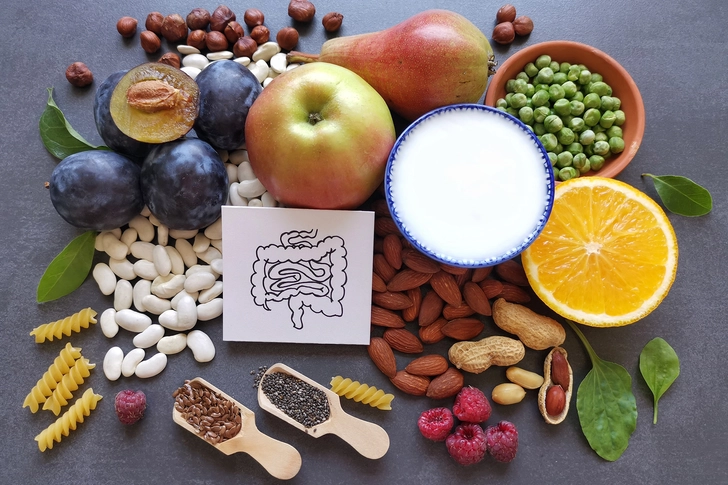- Overview
- Symptoms
- Causes & Risks
- Tests & Diagnosis
- Treatment
- Living With
- Complications
- Support & Resources
- Appointment Prep
- View Full Guide
Understanding Crohn's Disease


Challenges of Crohn's
It can be hard to get enough nutrition and maintain a healthy body weight with Crohn's disease. Crohn's often inflames the small intestine, which can cause diarrhea and belly pain. You may have less appetite, and the inflammation makes it harder for your body to absorb nutrients from the food you do eat.

No One-Size-Fits-All Diet
You've probably read about types of diets for Crohn's disease. But there is no scientifically proven diet for the disease. However, by avoiding your trigger foods, you may find your symptoms are more manageable. At the same time, you will give your inflamed intestines time to heal.

Identifying Trigger Foods
The foods that trigger symptoms differ for each person with Crohn's disease. Common trigger foods include spicy or greasy foods, whole grains, high-fiber fruits and vegetables, nuts and seeds, caffeine, and alcohol. It's generally recommended to avoid high-fiber foods during a flare-up.

Eating During Flare-Ups
During flare-ups, focus on high-calorie and high-protein foods to maintain adequate nutrition. Avoid alcohol, high-fiber foods, raw fruits and vegetables, red meat, and spicy foods. All of these can worsen inflammation and discomfort.

Supplements May Help
Many studies suggest omega-3 fatty acids reduce inflammation. But the findings aren't all the same on whether they specifically help reduce inflammation in Crohn's. If you want to add omega-3 supplements to your diet, talk to your doctor first. Other studies are exploring whether probiotics may be helpful in Crohn's disease, but more research is needed.

Keep a Food Diary
Keeping track of the foods you eat each day can help you identify trigger foods. You can also use a food diary to help you and your doctor know if you're getting enough protein, carbohydrates, fats, and water. It can also show if you're getting enough calories to maintain your weight and energy.
Photo Credits:
1) chalermphon_tiam/Shutterstock
2) Danijela Maksimovic/Shutterstock
3) Ekaterina Pokrovsky/Shutterstock
4) Elena Veselova/Shutterstock
5) iHumnoi/Shutterstock
6) Daniele Mezzadri/Shutterstock
Crohn's & Colitis Foundation: “Diet and Nutrition,” “Crohn's Treatment Options,” “Diet, Nutrition and Inflammatory Bowel Disease,” “Short Bowel Syndrome and Crohn's Disease,” “What is Crohn's Disease,” “What Should I Eat?” “Living with Crohn’s Disease,” “Vitamin and Mineral Supplementation.”
National Digestive Diseases Information Clearinghouse (NDDIC): “Crohn's Disease.”
USDA: “Diet and Disease.”
American Academy of Family Physicians: “Digestive Disorders.”
Practical Gastroenterology:“Nutritional Considerations in Inflammatory Bowel Disease.”
Clinical Nutrition: “ESPEN guideline: Clinical nutrition in inflammatory bowel disease.”
American Gastroenterological Association: “Is Dietary Fiber OK for Patients With Crohn's Disease or Ulcerative Colitis?”
Clinical Gastroenterology and Hepatology: “Avoidance of Fiber Is Associated With Greater Risk of Crohn's Disease Flare in a 6-Month Period.”
Permanente Journal: “High Amount of Dietary Fiber Not Harmful But Favorable For Crohn's Disease.”
American Dietetic Association: “Crohn's Disease and Diet.”
Mayo Clinic: “Low-fiber diet do's and don'ts,” “What are probiotics and prebiotics?”
Alcohol Research: Current Reviews: “Alcohol and Gut-Derived Inflammation.”
American Journal of Preventive Medicine: “Optimal vitamin D status for colorectal cancer prevention: a quantitative meta analysis.”
The British Association for Parenteral and Enteral Nutrition: “Enteral and Parenteral Nutrition.”
Cleveland Clinic: “A Nutritional Plan for Anyone Living With Crohn’s Disease or Ulcerative Colitis.”
Crohn’s Colitis Canada: “Eating and Drinking with IBD.”
Gastroenterology: “AGA Clinical Practice Guidelines on the Role of Probiotics in the Management of Gastrointestinal Disorders.”
Johns Hopkins Medicine: “Anti Inflammatory Diet.”
Journal of Gastroenterology and Hepatology: “Alcohol Use in Patients With Inflammatory Bowel Disease.”
Institute of Medicine of the National Academies: “Dietary Reference Intakes for Calcium and Vitamin D.”
Mount Sinai: “Soluble vs. insoluble fiber.”
NHS: “Diet and Crohns Disease,” “Low Fibre Diet (Low Residue Diet).”
University of Michigan Health System: “Low-Fiber/Low-Residue Diet.”
University of Virginia Health: “Nutrition and Crohn's Disease.”